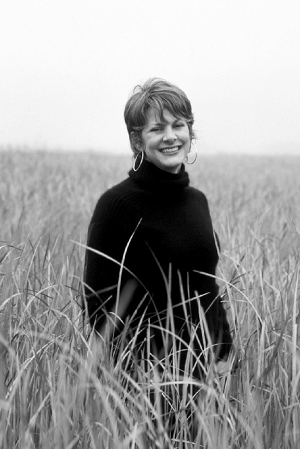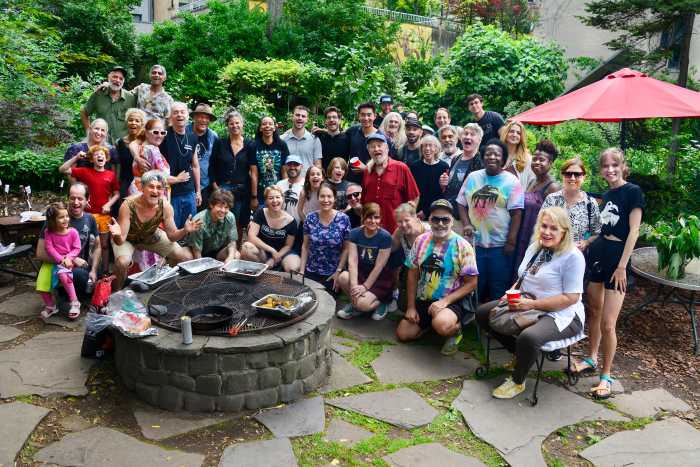Each year, the National Outdoors Show in Golden Hill, Maryland, offers two incongruous competitions, a beauty pageant and a muskrat-skinning contest, in one. On the surface, it sounds like a strange slice of Americana, ripe for caricature.
But in “Muskrat Lovely,” documentary filmmaker and Villager Amy Nicholson has fun in telling a hilarious story about a small-knit community on the Chesapeake Bay, without making fun. The hour-long doc, currently making the festival circuit, airs Halloween night at 12:30 AM on Channel 13 as part of the “Independent Lens” series on PBS. Nicole Davis spoke with Nicholson before the film’s national premiere.
You work in advertising — how did you get involved in documentary film?
I had done a lot of real people advertising. Remember the Snapple campaign? [The one where “Wendy, The Snapple Lady” responds to letters of Snapple drinkers from behind her desk.] I did that campaign, and after that I always knew I would love to do a documentary — I just find real people so great and fascinating.
But I was a full-time, hardcore ad person for years, until I went freelance, and a friend said, “You don’t work all the time, you could take time off and go to NYU film school.” So I took some classes and made a short film.
It was called “Beauty School,” about the New York School of Dog Grooming. What is it about pageantry and animals that is so intriguing to you?
Someone once asked me, “Are you going to be the animal documentarian?” But it’s really not about beauty or grooming or animals. There’s really no common denominator, except that I gravitate toward things that on the surface are seemingly ridiculous. “Muskrat Lovely” gets a lot of Christopher Guest references—[and] it’s like those stories, only it’s real. I’m sort of drawn to people who have a passion for things that seem on the surface to be odd and I want to find out why [they do] — hopefully without making fun of anyone, because I try really hard not to do that.
How did you find out about this contest?
Every year my dad would invite me to this muskrat skinning competition. And I thought he was kidding — he has a very dry sense of humor, like me. But he said you really have to come. And it was amazing. I thought these people were fascinating, and this little community was so fantastic. I grew up in Maryland, so the area was familiar to me, but the Eastern Shore is very different from the rest of the state; people still make a living catching fish. You have a lot of heart for the Chesapeake if you grow up in Maryland. And I found out that they had a beauty pageant [as part of the skinning contest] and I’d missed it, but that the following year, it would be the 50th anniversary of Miss Outdoors. And I said to my friend, “Someone should film this,” and she said, “You should film this.”
What do you think about pageants in general?
They’ve definitely evolved. Women win scholarships now [through them] — but I make no judgment one way or another. I am awestruck that they still exist in our society. And so I find that fascinating, but I can also appreciate that if you live in a small town, that’s your chance to shine. And that was made very clear to me in the first interview I did. Everyone has seen [these high school girls] through all their awkward stages, and this is the one time of year where they can dress up and have everyone appreciate them. I give them credit for having the nerve to do that, because everyone in town comes. But the reason I made the film was because I couldn’t believe there was a pageant that coexisted with this muskrat skinning championship. And I think that toward the end of the film, I really found myself exploring the drama of the event and how beautiful the place was. It was really more about what a beauty pageant is like in a place where there are just three nail salons. It was a very he-manish place.
It’s striking how small the community is — and how few people leave it.
They rarely leave because so many men grow up working on the boat with their dads and then go on to get their own boats. Husbands and wives have businesses together, and everyone relies on everyone else. That concept is really very sweet. So people don’t leave, but it’s not because they’re podunks, it’s because the town is so great and that sense of community is so strong. I think that seems unusual for a lot of people in New York, but think about it — I’ve lived in the Village for the last seven years, and I don’t ever want to leave my neighborhood.































